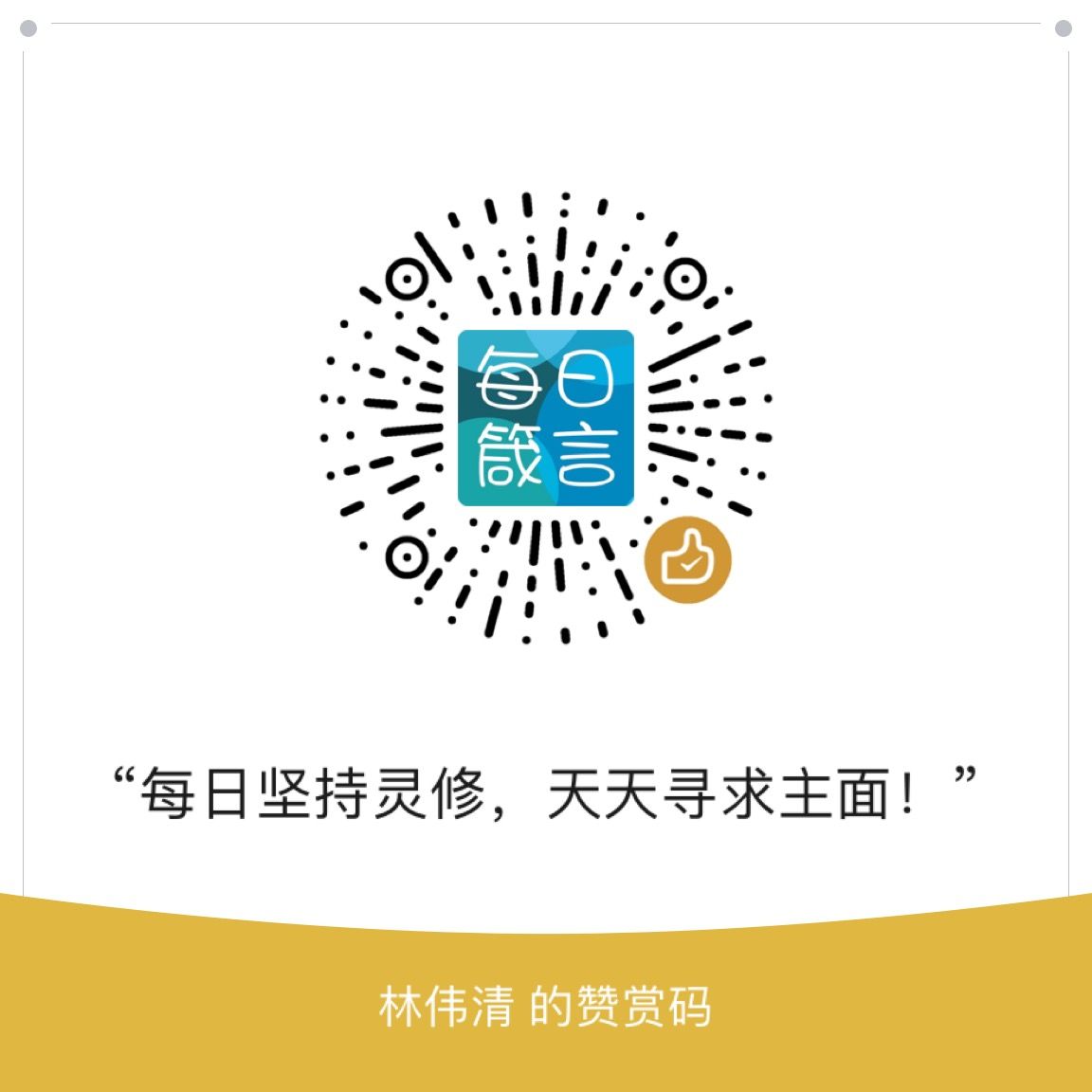“你这假冒为善的人!先去掉自己眼中的梁木…” - 太 7:5
当我看到有人做错事时,我的第一个冲动就是发怒。我想发脾气,谴责我在他们行为中看到的错谬。我倾向于认为:我指出他们的罪,是在给这个世界帮忙。
但在这段经文中,耶稣敦促我们要放慢脚步,问问自己是否做过这样的事,或者更糟糕的事。
我是否曾经以这种方式与他人谈过话?我是否曾经以这样的方式对待过我的子女?我是否以这种方式浪费过我的资源?
如果是这样,我需要做些什么来改变呢?
这并不意味着我们永远不会与他人有冲突。但是先做一些自我反省,有助于使我们的对话更有建设性,减少批评指责,因为我们是从一个谦卑的起点出发,而不是站在一个高度进行审判。
在登山宝训中,耶稣一直在挑战我们,不仅要关注我们的行为,还要关注我们的心思意念、态度和动机,即使在冲突当中也是如此。
在你论断别人之前,先好好省察你自己的心。确保你已经处理了你自己眼中的那块梁木。因为如果你不这样做,你就成了假冒为善的人,你所评价的也是毫无益处的。
祷告
父啊,当我与人发生冲突时,请帮助我认清自己的错误。帮助我有恩典,也有智慧,用言语将他人带到你面前。阿们。

马太福音 7:1-5
1“你们不要论断人,免得你们被论断。2因为你们怎样论断人,也必怎样被论断;你们用什么量器量给人,也必用什么量器量给你们。3为什么看见你弟兄眼中有刺,却不想自己眼中有梁木呢?4你自己眼中有梁木,怎能对你弟兄说‘容我去掉你眼中的刺’呢?5你这假冒为善的人!先去掉自己眼中的梁木,然后才能看得清楚,去掉你弟兄眼中的刺。
Judging Others
"You hypocrite, first take the plank out of your own eye. . . ." - Matthew 7:5
When I see someone doing something wrong, my first impulse is to lash out. I want to get angry and condemn what I see in their behavior. I like to think I’m doing the world a favor by pointing out their sin.
But in this passage Jesus urges us to slow down and ask ourselves if we have ever done such a thing—or worse.
Do I talk to people that way? Do I treat my kids that way? Do I waste my resources that way?
And if so, what do I need to do in order to change?
This doesn’t mean we never confront others. But doing some self-reflection first helps our conversations to be more helpful, and less critical, because we are coming from a place of humility rather than judgment.
All through the Sermon on the Mount, Jesus has been challenging us to focus not only on our behavior but also on our thoughts, our attitudes, and our motives as well—even in times of conflict.
Before you pass judgment on someone else, take a good, long look at your own heart. And make sure you have dealt with the plank that’s sticking out of your own eye. Because if you don’t, you will come off as hypocritical. And unhelpful.
Prayer
Father, help me to recognize my own faults when I experience conflict with someone. Help my speech to point others to you, and let it be gracious and seasoned with wisdom. Amen.

